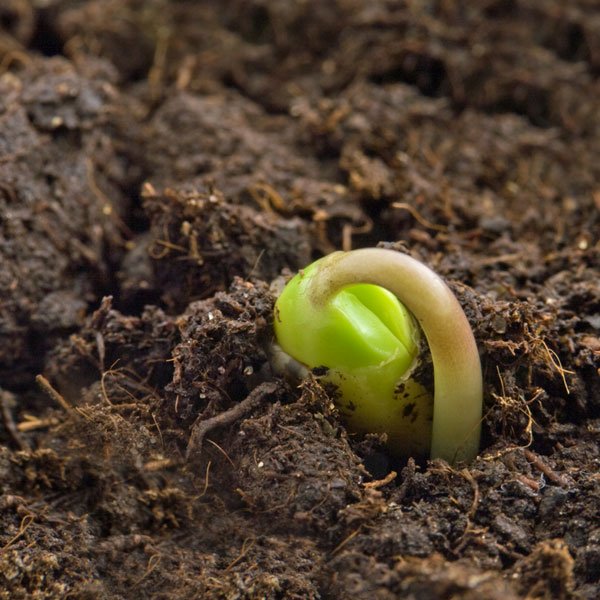Which COVID-19 Habits are Sustainable?
 The COVID-19 pandemic impacted the world overnight by forcing entire cities and countries to lockdown and shelter in place. The highly-contagious nature of the coronavirus caused most people to self-isolate for unprecedented amounts of time. The change has been difficult for many, but there’s been a silver lining; NASA satellites show a drop of 30% in carbon emissions over the Northeastern US.
The COVID-19 pandemic impacted the world overnight by forcing entire cities and countries to lockdown and shelter in place. The highly-contagious nature of the coronavirus caused most people to self-isolate for unprecedented amounts of time. The change has been difficult for many, but there’s been a silver lining; NASA satellites show a drop of 30% in carbon emissions over the Northeastern US.
As people used vehicles less and stayed home more, the improvement in air quality was dramatic. Even more, the cleaner air quality from the COVID-19 quarantine has saved lives in Europe, as there were 11,000 fewer deaths from pollution. Now that humankind has had a look at what a low-carbon world could be like, it’s up to all of us to maintain the environmental improvements. But exactly which COVID-19 habits are sustainable?
Remote Work
Many employees had to work from home during the outbreak. Remote work has its challenges, especially if more than one family member is working from home, but it’s an eco-friendly habit worth embracing.
Working from home is a better alternative to commuting to an office or business location. Employees save time they’d normally be stuck in rush hour traffic and save money they’d spend at the fuel pump. With a few adjustments to the home environment, it’s possible to work just as productively, if not more so, from home.
If your company continues to offer employees the chance to work from home after the COVID-19 pandemic, consider taking them up on it. Even if it’s just once a week, you’re working towards a sustainable future by reducing your carbon footprint. Meanwhile, consider walking or taking alternative forms of transportation like biking when you do need to get around town. Small adjustments in your habits lead to lasting change.
Walking More
Staying home has likely taught many the value of physical activity — especially since many of us miss what we take for granted when it’s gone. For example, many people used to turn to a health club or gym to work out — they would use a treadmill even when they had a park nearby. Naturally, we had to shift the way we work out during the quarantine; luckily, one of the top ways to exercise during the epidemic was by going for a walk or a run. Besides keeping you fit, walking allows you to get some fresh air and feel closer to nature with minimal impact to the environment. It’s a good habit to sustain post-COVID-19.
Home Cooking
Although many delivery services have operated normally through the quarantine, many people decided to take up home cooking while sheltering at home. Putting together a homemade meal is likely less expensive and a much healthier alternative than drive-thru food or takeout.
Cooking at home more often is a habit worth continuing after the coronavirus outbreak is over for its ecological benefits. To practice more sustainable methods, be more conscious of the ingredients you use and the way you serve the meal. For the healthiest meal possible, use locally-sourced meat or poultry purchased at your local farmers’ market or natural food store. Prepare dishes using organic produce or greens grown from your own backyard garden. And consider using eco-friendly alternatives to everyday tableware such as cloth napkins instead of paper to reduce the amount of waste you send to landfills.
Less Consumption
As you remained at home, your shopping habits probably slowed down. You may have turned to Amazon or other online stores to continue your retail therapy addiction, but it’s likely that you were less tempted to buy things once the stores you’d normally shop at closed. You aren’t alone — even when accounting for the increase in online sales, retail sales overall were lower this year (6.1%) than the same time last year, due to the pandemic.
If you look back at the last couple of months, you may realize you were able to live a happy life without many of the things you believed you couldn’t live without before. Be proud. Your reduced consumption means fewer items making their way to a landfill, less clutter around your home, and more money in your pocket. To live a truly sustainable life, it’s necessary to continue living with less.
Want to take it further? Go through your home and give it a clutter overhaul. Donate, recycle, or sell items you don’t use or no longer really need. The process may be overwhelming at first, but decluttering your life can be liberating.
Sustainability in a Post-COVID World
Studies say it takes a little over two months for something to become a habit. You were likely living a more sustainable lifestyle during the pandemic, whether you were conscious of it or not. Now that it’s a habit, continue some of the sustainable practices into the “new normal.”
Being more conscious of how your choices have a far-reaching impact on your community, the country, and the planet makes it easier to be more deliberate of how you live your life. As you fall back into your old pre-COVID routine, incorporate some of the best habits you picked up during the pandemic.


